Remittance Cost Calculator
Send Money to Bangladesh: Traditional vs Crypto
Calculate how much you could save by using crypto for international remittances compared to traditional banking methods. Based on real user experience in Bangladesh where crypto remittances cost only 1% vs 8% for traditional services.
Over 600,000 people in Bangladesh are using Binance to buy and trade cryptocurrency-even though the government says it’s illegal. They’re not alone. Across the country, people are turning to Bitcoin, Tether, and other digital assets to send money abroad, protect savings from inflation, and access global markets. And they’re doing it despite warnings from the central bank, threats of legal action, and the risk of losing their money-or worse, their freedom.
How Can You Use Crypto in a Country That Bans It?
The Bangladesh Bank, the country’s central bank, has been clear since 2014: cryptocurrencies aren’t legal. They’re not money. They’re not recognized. Using them for payments or trading could violate the Foreign Exchange Regulation Act of 1947 and the Money Laundering Prevention Act of 2012. But laws on paper don’t always match reality. People in Bangladesh aren’t using crypto through official banks. They’re using local agents. These are everyday people-shop owners, students, delivery drivers-who act as middlemen. You give them 10,000 Bangladeshi Taka. They give you $85 worth of Tether (USDT) on Binance. They take a 2-5% fee. It’s simple, fast, and works even when banks freeze accounts or block transactions. Apps like Binance and KuCoin are still on the Google Play Store. No government block. No warning screen. You download it, sign up, and start trading. The Bangladesh Bank says this violates anti-money laundering rules. But enforcement? That’s another story. Police don’t raid homes for crypto. Banks don’t track every dollar sent to Binance. The system is too big, too messy, and too widespread to shut down overnight.Why Do People Risk It?
The answer isn’t speculation. It’s survival. Bangladesh’s economy is growing, but inflation is eating into savings. The Bangladeshi Taka has lost value against the U.S. dollar over the past five years. People who keep money in local banks see their purchasing power shrink. Crypto offers a way out. Tether, which is pegged to the dollar, becomes a digital safe haven. Then there’s remittances. Bangladesh receives over $20 billion in remittances every year-mostly from workers in the Middle East and Southeast Asia. Sending money through traditional channels like Western Union or bank transfers takes days and costs up to 8%. With crypto, a worker in Malaysia can send USDT directly to a family member in Dhaka in minutes. The receiver cashes out through an agent. The fee? 1%. Small businesses are using it too. Importers buying goods from India or China often get stuck with slow, expensive bank wires. Crypto bypasses that. They buy USDT on Binance, send it to their supplier’s wallet, and the supplier cashes out locally. No paperwork. No delays. No middlemen.The Government’s Contradiction
Here’s the twist: the government doesn’t ban blockchain. In 2020, it launched a National Blockchain Strategy. It wants to use blockchain for land records, tax collection, and public services. It sees the technology as essential. But it draws a hard line at cryptocurrency. That’s like saying you can use the engine of a car but not the wheels. Blockchain is the foundation. Crypto is what makes it useful for people. You can’t separate them without breaking the system. Experts like Dr. B M Mainul Hossain, a professor at Dhaka University, say the ban is outdated. “Banning is not a solution,” he says. “Sitting back and doing nothing is not the answer.” He points to countries like India and Nigeria, where crypto is restricted but not banned-and where regulators are working to build oversight systems. Bangladesh could do the same: require KYC on exchanges, tax crypto gains, and track suspicious flows. Instead, it’s pretending the problem will disappear.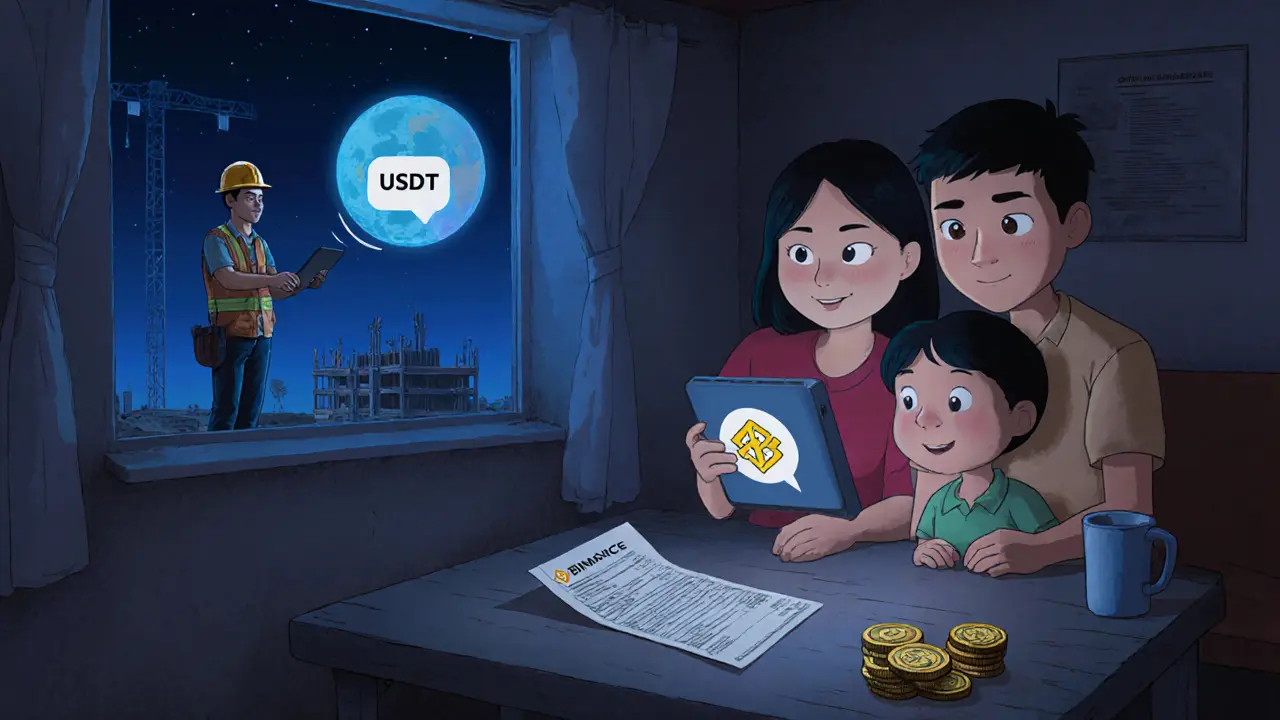
The Hidden Cost of the Ban
The ban isn’t stopping crypto use. It’s making it riskier. When people use agents instead of direct exchanges, they lose protection. No customer support. No dispute resolution. No insurance. If an agent disappears with your money, there’s no recourse. Banks won’t help. Police won’t investigate. The government says, “You broke the law-you’re on your own.” It also pushes crypto into darker corners. People who want to use crypto responsibly-like students learning about finance or small traders trying to expand their business-are forced to operate in the shadows. They can’t get advice. They can’t learn safely. They’re left to figure it out alone, often from unverified YouTube videos or Telegram groups. And for the economy? The ban hurts. It blocks innovation. It discourages fintech startups from building crypto-based tools. It keeps Bangladesh out of the global digital finance conversation. Meanwhile, neighboring countries like India and Sri Lanka are building regulatory sandboxes. Bangladesh is digging its heels in.What’s Next?
The underground market isn’t shrinking. It’s growing. With over 600,000 users on Binance alone-and likely millions more using other platforms or agents-the government is facing a reality it can’t ignore. Some officials are quietly talking about reform. There’s talk of licensing crypto exchanges. Of allowing dollar-pegged stablecoins for remittances. Of taxing crypto income under the Income Tax Ordinance of 1984. But nothing’s official yet. Until then, the people are ahead of the law. They’re using apps, agents, and wallets to take control of their money. They’re not criminals. They’re just trying to make sense of a system that doesn’t work for them. The question isn’t whether Bangladesh will ever allow crypto. The question is: when will it stop pretending it can stop it?How Users Are Adapting
Most users don’t even think of themselves as breaking the law. To them, it’s just how you send money. How you save. How you trade. Many use prepaid cards bought with cash to fund Binance accounts. Others trade through peer-to-peer (P2P) platforms on Binance, where buyers and sellers match directly. The platform handles the escrow. The user pays in Taka via mobile banking or cash deposit. No bank ever sees the crypto side. Some use crypto to buy gift cards for Amazon, Netflix, or Google Play-then resell them locally for cash. It’s a workaround, but it’s effective. Others hold crypto as long-term savings, waiting for the day when regulations change and they can cash out safely. There’s no central database of users. No government tracking. But estimates from blockchain analytics firms suggest over 1 million Bangladeshis have interacted with crypto in some form. The 600,000 on Binance are just the visible part.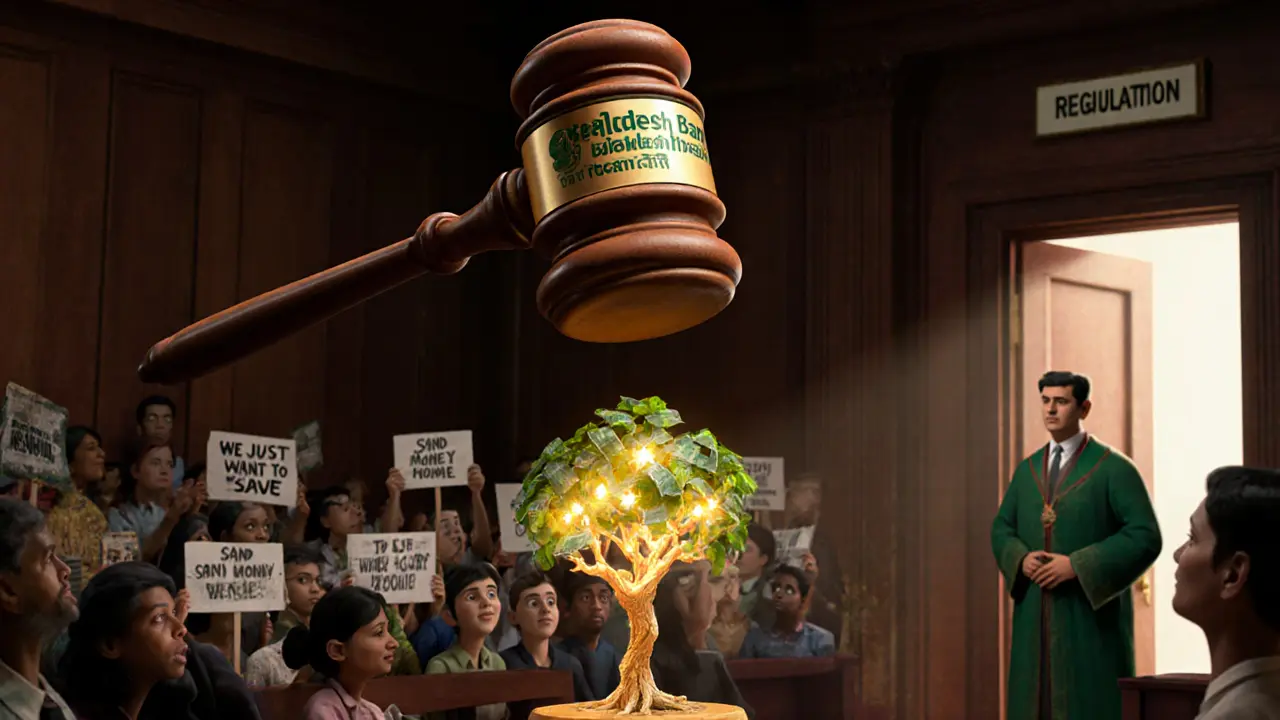
What Happens If You Get Caught?
Technically, you could face fines or even jail under the Money Laundering Prevention Act. But there are no public cases of someone being prosecuted just for holding crypto. The government doesn’t have the resources-or the will-to chase individual users. The real targets are large-scale operators: crypto exchanges registered locally, agents moving millions, or businesses using crypto for international trade. Even then, enforcement is rare. The focus is on preventing money laundering, not punishing everyday people. Still, the fear is real. People delete apps after big news headlines. They avoid talking about crypto with friends. They use burner phones. They don’t use their real names on exchanges. The ban has created a culture of secrecy-not because people want to hide, but because they have to.Global Context: Bangladesh Isn’t Alone
Bangladesh is one of only 10 countries with a full crypto ban. Others include Egypt, Nepal, Morocco, and China. But even in those countries, crypto is used. People adapt. Technology wins. In Nigeria, banks blocked crypto transactions in 2021. Usage jumped. In India, crypto was almost banned in 2018. Today, it’s a $10 billion market with clear tax rules. The lesson? Bans don’t kill demand. They just make it more dangerous. Countries that embraced regulation-like the UAE, Switzerland, and Singapore-saw fintech growth, job creation, and innovation. Bangladesh could have been next. Instead, it’s stuck in a loop of denial.Final Thought: The Ban Is a Symptom, Not the Problem
The real issue isn’t crypto. It’s trust. People don’t trust the banking system. They don’t trust the currency. They don’t trust the government to protect their savings. Crypto isn’t the villain. It’s the symptom of a system that’s failing them. Until Bangladesh fixes its financial infrastructure, rebuilds trust, and gives people real alternatives, the 600,000 on Binance-and the millions more who will join them-will keep using it. Not because they want to break the law. But because they have no other choice.Is it legal to use Binance in Bangladesh?
No, it’s not legal. The Bangladesh Bank has banned all cryptocurrency transactions since 2014, calling them violations of the Foreign Exchange Regulation Act and Money Laundering Prevention Act. Using Binance or any crypto platform is considered illegal under current rules. However, enforcement against individual users is extremely rare.
How do Bangladeshis buy crypto if banks block it?
Most use local agents who exchange Bangladeshi Taka for crypto like USDT or Bitcoin. You pay cash or use mobile banking, and the agent sends crypto to your Binance wallet. Others use prepaid cards bought with cash or P2P trading on Binance, where buyers and sellers connect directly without bank involvement.
Can the government track crypto transactions in Bangladesh?
The government can track bank transfers used to fund crypto purchases, especially if you use a credit card or bank wire. But once crypto is in a wallet, it’s nearly impossible to trace unless the user reveals their private keys. Agent-based transactions leave no digital trail, making detection very difficult.
Are there any penalties for using crypto in Bangladesh?
Legally, yes-fines or imprisonment under anti-money laundering laws. But there are no known cases of individuals being jailed just for holding or trading crypto. Authorities focus on large-scale operators, not everyday users. Still, the risk of account freezes or legal trouble remains.
Why does Bangladesh ban crypto but support blockchain?
The government sees blockchain as a tool for public services-like land records and tax systems-where transparency matters. But it fears cryptocurrency’s decentralization, anonymity, and potential for capital flight. It treats the technology (blockchain) as safe, but the application (crypto) as dangerous, even though one can’t exist without the other.
Is crypto taxed in Bangladesh?
There’s no specific crypto tax law. But the National Board of Revenue says crypto profits fall under the Income Tax Ordinance of 1984. If you make money trading or selling crypto, you’re technically required to declare it. But since most transactions are off the books, very few do.
What’s the future of crypto in Bangladesh?
The underground market is growing fast, and experts say the ban is unsustainable. Pressure is building from users, academics, and businesses. The government may eventually shift toward regulation-licensing exchanges, requiring KYC, and taxing gains-rather than trying to ban a technology people have already adopted.



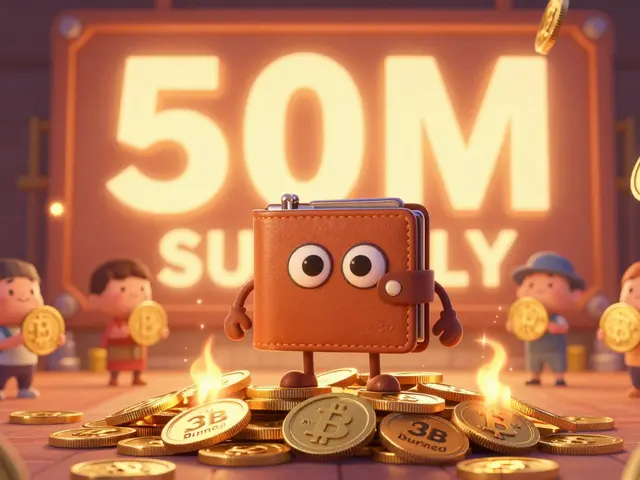
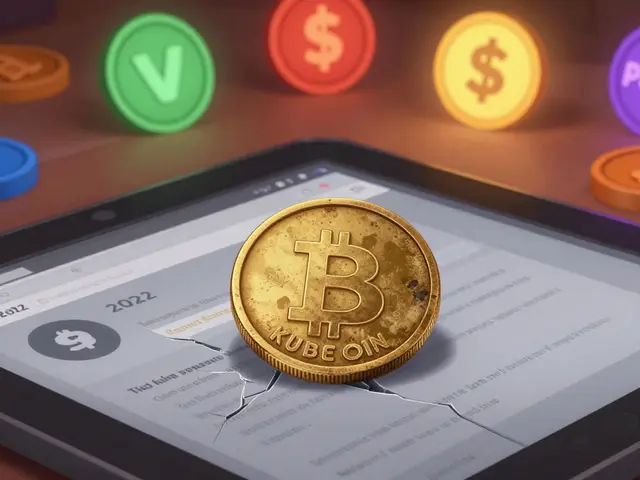

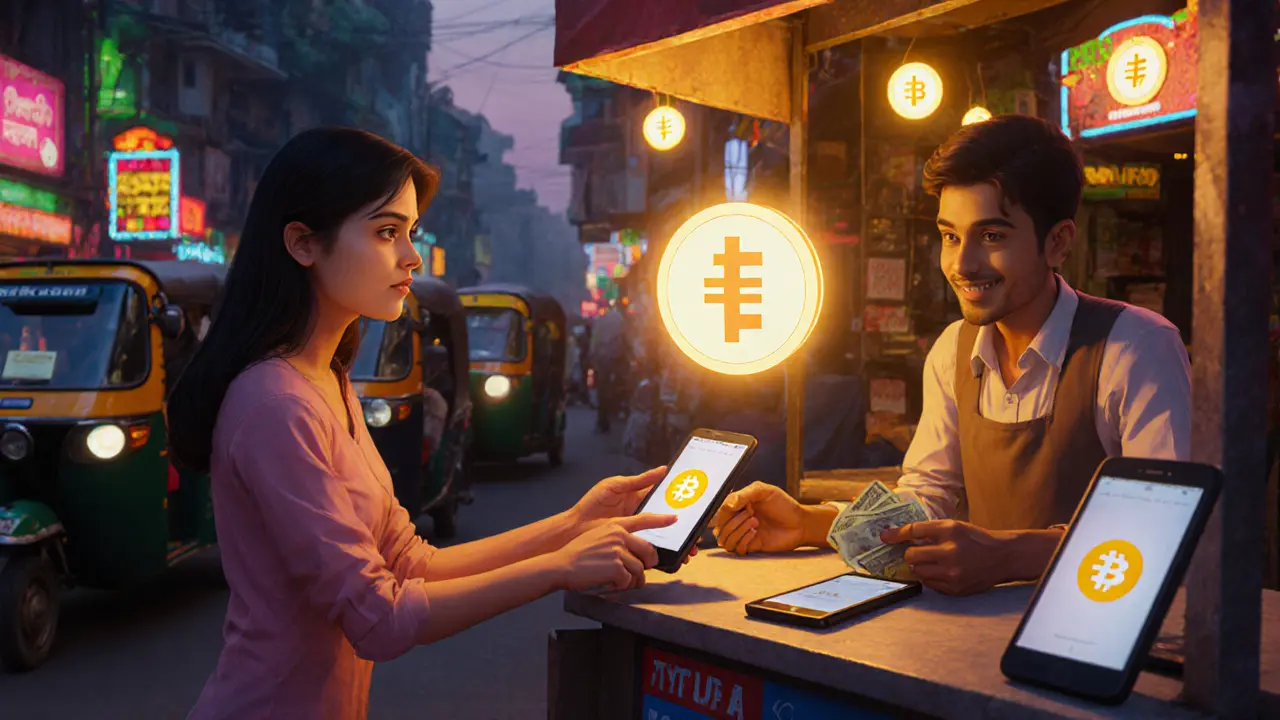
Write a comment